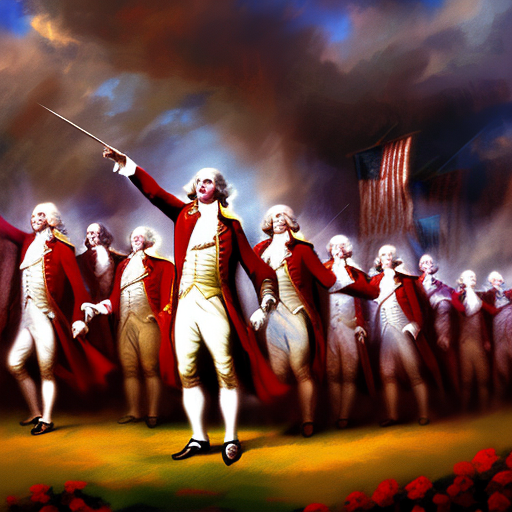Summary:
Founding Brothers: The Revolutionary Generation by Joseph J. Ellis is a captivating exploration of the early years of the United States, focusing on the relationships and interactions between the key figures who shaped the nation. Through a series of six vignettes, Ellis delves into the complexities and contradictions of the founding era, shedding light on the challenges faced by the Founding Fathers and the lasting impact of their decisions.
The Duel between Alexander Hamilton and Aaron Burr:
One of the most infamous events in American history, the duel between Alexander Hamilton and Aaron Burr serves as a microcosm of the political and personal tensions of the time. Ellis examines the circumstances leading up to the duel, highlighting the deep-rooted animosity between the two men and the underlying issues of honor and reputation that fueled their conflict. The duel ultimately resulted in Hamilton’s death, leaving a lasting impact on the nation’s political landscape.
The Compromise of 1790:
Ellis explores the delicate negotiations and compromises that took place between Thomas Jefferson, James Madison, and Alexander Hamilton, which laid the foundation for the nation’s financial system and the location of the nation’s capital. Through this vignette, Ellis emphasizes the fragility of the young republic and the importance of compromise in establishing a stable government.
The Friendship between John Adams and Thomas Jefferson:
Despite their ideological differences, John Adams and Thomas Jefferson formed a deep and enduring friendship that spanned decades. Ellis delves into their complex relationship, highlighting their shared experiences in the Revolutionary War, their subsequent political rivalry, and their eventual reconciliation in their later years. This vignette underscores the power of personal relationships in shaping political alliances and the ability to put aside differences for the greater good.
Key Takeaways:
- The founding era was marked by intense personal and political rivalries, which shaped the course of the nation’s history.
- Compromise played a crucial role in establishing a stable government and resolving contentious issues.
- Personal relationships and friendships had a significant impact on political alliances and decision-making.
- The decisions made by the Founding Fathers continue to shape the United States to this day.
“The American Revolution was a fragile and improbable event that succeeded against all odds because of the character, leadership, and decisions of an extraordinary group of individuals.” – Joseph J. Ellis
In Founding Brothers: The Revolutionary Generation, Joseph J. Ellis skillfully brings to life the complexities and contradictions of the early years of the United States. Through a series of engaging vignettes, Ellis explores the personal and political dynamics of the Founding Fathers, shedding light on the challenges they faced and the decisions they made that continue to shape the nation. From the infamous duel between Alexander Hamilton and Aaron Burr to the delicate compromises that laid the foundation for the nation’s financial system, Ellis offers a nuanced and thought-provoking examination of this pivotal period in American history.
One of the key themes that emerges from the book is the fragility of the young republic and the importance of compromise in establishing a stable government. Ellis highlights how the Founding Fathers navigated the treacherous waters of political rivalries and conflicting ideologies, ultimately finding common ground through negotiation and compromise. This theme is exemplified in the Compromise of 1790, where Thomas Jefferson, James Madison, and Alexander Hamilton reached a crucial agreement that shaped the nation’s financial system and the location of its capital.
Another significant aspect of the book is the exploration of personal relationships and their impact on political alliances. Ellis delves into the friendship between John Adams and Thomas Jefferson, two men who held starkly different political beliefs but managed to maintain a deep bond throughout their lives. This vignette serves as a reminder of the power of personal connections in shaping political decisions and the ability to put aside differences for the greater good.
Overall, Founding Brothers: The Revolutionary Generation offers a fresh and compelling perspective on the early years of the United States. Ellis’s meticulous research and engaging storytelling make this book a must-read for anyone interested in understanding the complexities of the founding era. It serves as a reminder that the American Revolution was not a foregone conclusion but a fragile and improbable event that succeeded against all odds due to the character, leadership, and decisions of an extraordinary group of individuals.
Key takeaways from Founding Brothers: The Revolutionary Generation include the importance of compromise in establishing a stable government, the significant impact of personal relationships on political alliances, and the enduring legacy of the decisions made by the Founding Fathers. This book serves as a reminder that the challenges faced by the early leaders of the United States continue to resonate in the present day, and their actions continue to shape the nation’s trajectory.












